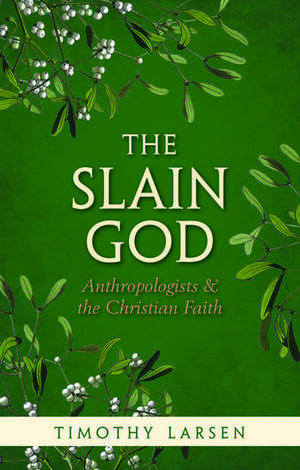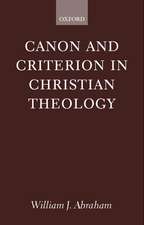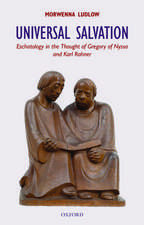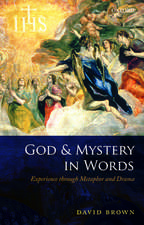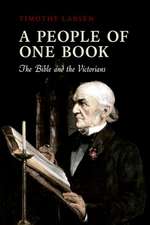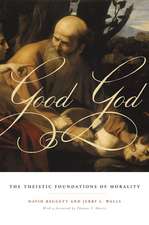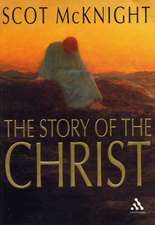The Slain God: Anthropologists and the Christian Faith
Autor Timothy Larsenen Limba Engleză Paperback – 11 feb 2016
| Toate formatele și edițiile | Preț | Express |
|---|---|---|
| Paperback (1) | 194.23 lei 31-38 zile | |
| OUP OXFORD – 11 feb 2016 | 194.23 lei 31-38 zile | |
| Hardback (1) | 351.26 lei 31-38 zile | |
| OUP OXFORD – 28 aug 2014 | 351.26 lei 31-38 zile |
Preț: 194.23 lei
Preț vechi: 236.44 lei
-18% Nou
Puncte Express: 291
Preț estimativ în valută:
37.16€ • 38.80$ • 30.76£
37.16€ • 38.80$ • 30.76£
Carte tipărită la comandă
Livrare economică 24-31 martie
Preluare comenzi: 021 569.72.76
Specificații
ISBN-13: 9780198757429
ISBN-10: 0198757425
Pagini: 272
Dimensiuni: 140 x 216 x 15 mm
Greutate: 0.32 kg
Editura: OUP OXFORD
Colecția OUP Oxford
Locul publicării:Oxford, United Kingdom
ISBN-10: 0198757425
Pagini: 272
Dimensiuni: 140 x 216 x 15 mm
Greutate: 0.32 kg
Editura: OUP OXFORD
Colecția OUP Oxford
Locul publicării:Oxford, United Kingdom
Recenzii
This is a startling book. Many anthropologists do not realize how deeply religious many of the great anthropologists of religion have been. The Slain God raises the question of how faith shapes what the anthropologist sees, and it will change the way the reader thinks about the answer.
Larsen's book is beautifully written and based on the most patient scrutiny of every scrap of evidence. It provides an authoritative account of some of anthropology's most influential practitioners.
This well-written and finely research book ... should be widely discussed in a variety of circles concerned with anthropology, religious studies, theology and the history of religion
a welcome contribution to the history of anthropology ... Larsen's narrative and sharp observations skilfully weave together authors' biographical experiences with their theoretical and ethnographic findings ... I hope this book will break for good certain unspoken taboos in the discipline that one cannot be at the same time a serious anthropologist and a practising 'believer'.
One of the many virtues of Larsen's study is its revealing of the 'all too human' character of the scholarship by the anthropologists he examines.
Readers interested in continuing debates over faith, science and secularism will find much of value in this very important book. The further you get into the book, the more astonished you are that no predecessor has written such a full-length study of this critically important topic.
Witty, penetrating, following the evidence where it leads, this book is a great delight.
Larsen's book is clearly and delightfully written. It is, he says, the first book-length study of the subject, and it is as welcome as it is overdue
As in his earlier work, Larsen disrupts a teleological vision of religion condemned to disappear before the forces of progress and modernity. He is to be congratulated for challenging this narrative head-on and confronting what amounts to anti-religious bias in the human sciences
In his latest book, The Slain God, Timothy Larsen provides a compelling account of the complex relationship between anthropology and the Christian faith . . . His is the first book-length study of the relationship between anthropology and Christianity and as such is of interest to anyone who wishes to understand this relationship better. The book is also particularly timely in view of the recent resurgence of interest in these issues in the anthropology of Christianity
This book will be greeted as something of a bombshell amongst anthropologists of religion...a highly original book that should be with us for a long time to come.
Larsen's book is beautifully written and based on the most patient scrutiny of every scrap of evidence. It provides an authoritative account of some of anthropology's most influential practitioners.
This well-written and finely research book ... should be widely discussed in a variety of circles concerned with anthropology, religious studies, theology and the history of religion
a welcome contribution to the history of anthropology ... Larsen's narrative and sharp observations skilfully weave together authors' biographical experiences with their theoretical and ethnographic findings ... I hope this book will break for good certain unspoken taboos in the discipline that one cannot be at the same time a serious anthropologist and a practising 'believer'.
One of the many virtues of Larsen's study is its revealing of the 'all too human' character of the scholarship by the anthropologists he examines.
Readers interested in continuing debates over faith, science and secularism will find much of value in this very important book. The further you get into the book, the more astonished you are that no predecessor has written such a full-length study of this critically important topic.
Witty, penetrating, following the evidence where it leads, this book is a great delight.
Larsen's book is clearly and delightfully written. It is, he says, the first book-length study of the subject, and it is as welcome as it is overdue
As in his earlier work, Larsen disrupts a teleological vision of religion condemned to disappear before the forces of progress and modernity. He is to be congratulated for challenging this narrative head-on and confronting what amounts to anti-religious bias in the human sciences
In his latest book, The Slain God, Timothy Larsen provides a compelling account of the complex relationship between anthropology and the Christian faith . . . His is the first book-length study of the relationship between anthropology and Christianity and as such is of interest to anyone who wishes to understand this relationship better. The book is also particularly timely in view of the recent resurgence of interest in these issues in the anthropology of Christianity
This book will be greeted as something of a bombshell amongst anthropologists of religion...a highly original book that should be with us for a long time to come.
Notă biografică
Timothy Larsen is McManis Professor of Christian Thought, Wheaton College, Wheaton, Illinois. He is a Fellow of both the Royal Historical Society and the Royal Anthropological Institute. He has been a Visiting Fellow, Trinity College, Cambridge, and some of the research for this volume was undertaken while a Visiting Fellow, All Souls College, Oxford. His previous monographs published by Oxford University Press are Crisis of Doubt: Honest Faith in Nineteenth-Century England and A People of One Book: The Bible and the Victorians.
